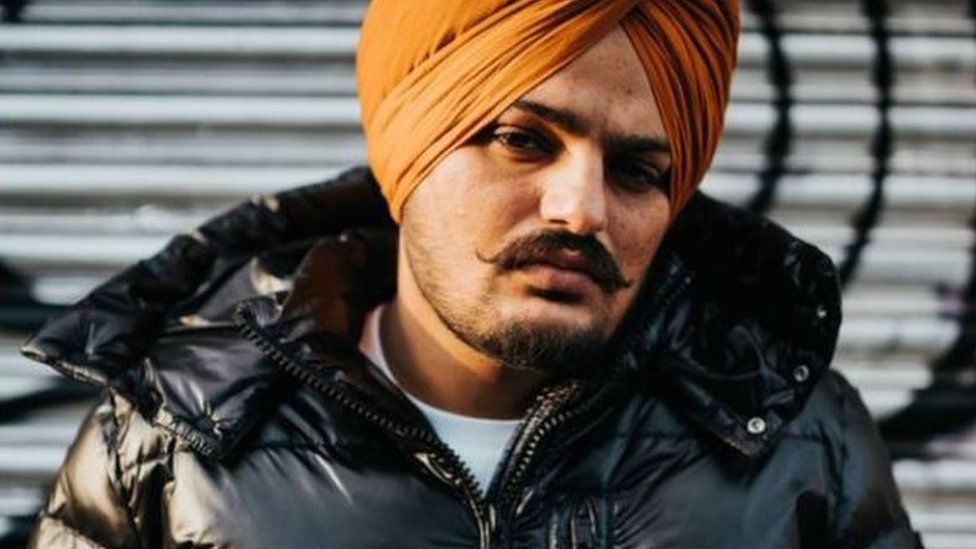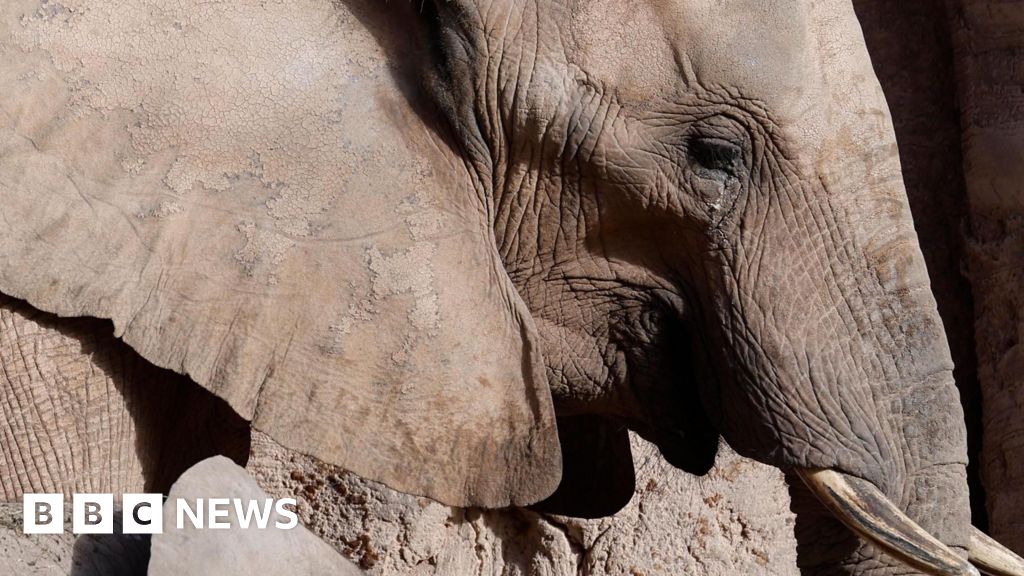ARTICLE AD BOX
By Zoya Mateen
BBC News, Delhi
 Image source, Sidhu Moosewala via Instagram
Image source, Sidhu Moosewala via Instagram
Moose Wala's death shocked fans across the world
It has been more than a month since rapper Sidhu Moose Wala was shot dead in the northern Indian state of Punjab. But he is still making headlines.
But his music is also continuing to make waves.
In June, Moose Wala's last song SYL was removed from YouTube in India after the government lodged a legal complaint. The posthumously released song talks about decades-long dispute over sharing river water between Punjab and the neighbouring state of Haryana, while also touching upon some other controversial subjects like Sikh militancy.
It's fitting that his legacy of asking hard questions continues even after his death.
In a career spanning just four years, Moose Wala wrote several powerful lyrics that explored the history and current state of Punjab. Critics say the state has an unsavoury side, involving a gritty gangster culture, corruption and rising unemployment and his music spotlighted that.
His fans see him as a man who was engaged with social realities. But what set him apart from his contemporaries was that he also offered a divergent vision of how Punjabis perceive themselves and his ideas were often considered unsettling and incendiary.
His affinity for guns and attempt to force listeners into complex and sometimes even uncomfortable conversations - like YSL - made him the subject of intense scrutiny.
"There is no doubt that he was a man of contradictions," says Harinder Happy, a journalist based in Punjab. "But his style spoke to the times and to living in a post-modernist society where everyone has the right to assert their identity the way they understand it."
Moose Wala was also deeply rooted to his home and village in a state where thousands are looking to immigrate to foreign shores in search of a better life.
Image source, Getty Images
Image caption,Moose Wala was one of the biggest stars in the Punjabi music industry
"He was many things, but above all he was deeply connected with the ecology of his village," says Pritam Singh, professor of economics at Oxford University, who has followed Moose Wala's music closely.
The singer was born as Shubhdeep Sidhu in a well-off, upper-caste Jatt-Sikh family. He studied engineering in Canada, where hundreds of thousands of Sikhs have emigrated.
It was there that he began his music career, releasing his debut album PBX 1 in October 2018 under the stage name of Sidhu Moose Wala - or "Sidhu of Moosa", his village.
The singer maintained a distinct hip-hop vocabulary, from clothes to style, which made him an instant hit on the global stage. His music at the time was also typically macho - as rap music often is - and swaggered on the edge of violence. Unapologetically belligerent, he sang about his fondness for guns, boasted about his caste and gave details of a put-down of his enemies.
"Moose Wala could've lived anywhere he wanted. But he chose his village, his parents and his people," Mr Happy says. "He not just held on to his village identity but also sought to elevate it, despite its complexities."
Mansa district, where Moose Wala's village is located, is widely seen as a backward region - it has one of the highest farmer suicide rates in Punjab and high unemployment levels and a serious groundwater crisis.
"People don't want to be identified with the region - they want to leave and never come back," Mr Happy explains. "But Moose Wala was different. He took pride in his roots and his music urged listeners to proudly accept the village as home."
This is captured most powerfully in Tibeyan Da Putt (Son of the sand dunes), signifying the semi-arid landscape of the region. "We do not belong to noble families/ Brought-up in the village and townships/ I don't have any existence of my own/ Yet, influential people fear me," the lyrics say.
Image source, Getty Images
Image caption,Moose Wala's song on India's contentious agricultural laws became an anthem for protesting farmers
Song after song, Moose Wala evoked the pull of village life, urging his listeners to embrace an agrarian lifestyle. In Bambiha Boley, he highlighted the beauty of traditional folk music; in Never Fold, he turned to stories of Robin Hood-like folk heroes who robbed the rich to help the poor.
Mr Happy says that Moose Wala came to embody the aspirations of the entire region, helping people cope and take pride in their identity.
"And he was accessible - anyone could meet him and he loved his fans. The singer often shot most of his videos in his village, featuring his family, which made him even more relatable," he adds.
Over time, Moose Wala's music also became more socially, culturally and politically conscious.
The most iconic of these was 295 - a song about freedom of speech in India. The title refers to Section 295 of the Indian Penal Code, which penalises actions "intended to outrage religious feelings".
In 2020, his song on India's contentious agricultural laws became an anthem for protesting farmers. The lyrics - "This is none other than the Punjab, which takes revenge with an open challenge" - were hailed for embodying the power of resistance, but critics said they were problematic and glorified violence.
Image source, Getty Images
Image caption,Despite his success, Moose Wala continued to live with his parents in his village home
Moose Wala never really stopped being controversial - he continued to sneer at his enemies and pose with guns.
"But over time, he moved away from casteist metaphors and his engagement with weapons became more measured," Prof Singh says.
This thematic shift, he adds, is central to the singer's personality. "That's because Moose Wala's story is also one of personal evolution. And unless we understand that, we cannot understand why he was so popular."
The contradictions don't end there.
Both Prof Singh and Mr Harry point out that unlike other rappers, Moose Wala's music lacked the sexual explicitness often associated with hip-hop and especially rap and his music never objectified or degenerated women.
In Dear Maa - a song dedicated to his mother - Moose Wala does not eschew overt sentimentality. Rather, he embraces it, Prof Singh says.
"It is remarkable that a man who is accused of being masochistic and violent is actually saying 'mother, I am like you'. And he captures the nuances so beautifully - one moment he says he's hot as the sun but other times he is soft like her."
In his memoir, popular American rapper JayZ wrote: "Rap is built to handle contradictions." And Moose Wala's music almost always carried multiple meanings, from political leanings to the messiness of identity and questions that often defy simple explanations.
Mr Happy says that music was Moose Wala's way to hold difficult conversations, to talk back and to assert his identity.
"His music's most persistent subject has been what it means to be Punjabi and how identity cannot be a monolith. Every album, every song, and every word is dedicated to demonstrating this truth," he adds.
This inquiry into the Punjabi identity was also rooted in his insistence that life in Punjab was more than just violence and drugs. By blending folk music with slick beats and sounds, Moose Wala was able to create rhymes that addressed the lives of Punjabis in ways they understood.
"It was this rural rootedness of his which resonated with people so deeply," Prof Singh says.
More than anything, Moose Wala, Mr Happy says, put forth an exciting idea that there was freedom to be found within music.
"And being controversial is inevitable when you ask tough questions."

 2 years ago
46
2 years ago
46








 English (US) ·
English (US) ·